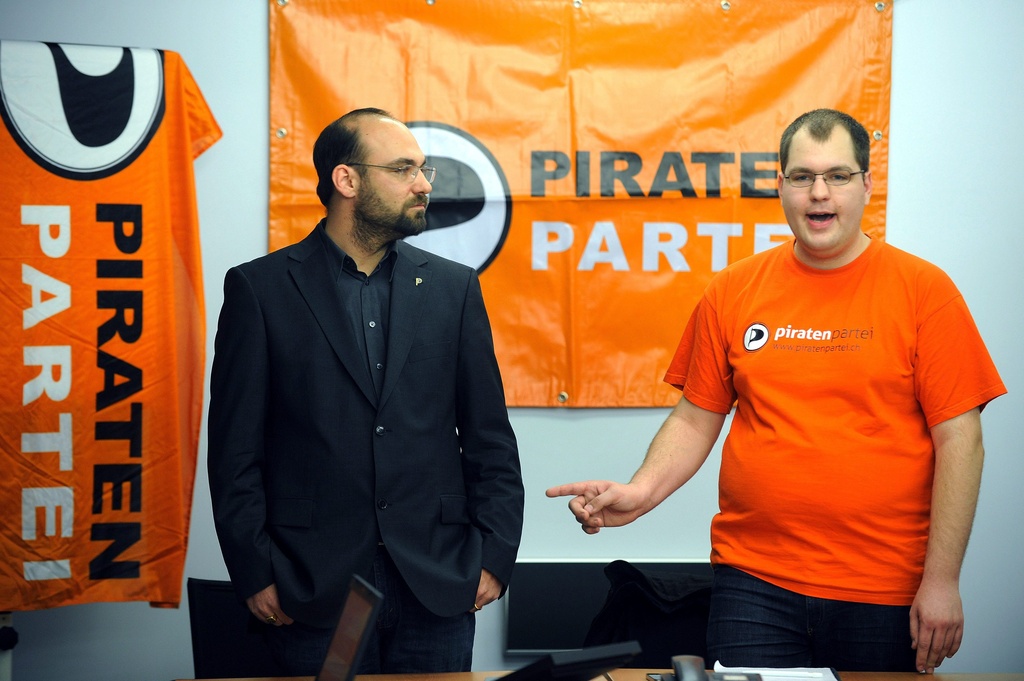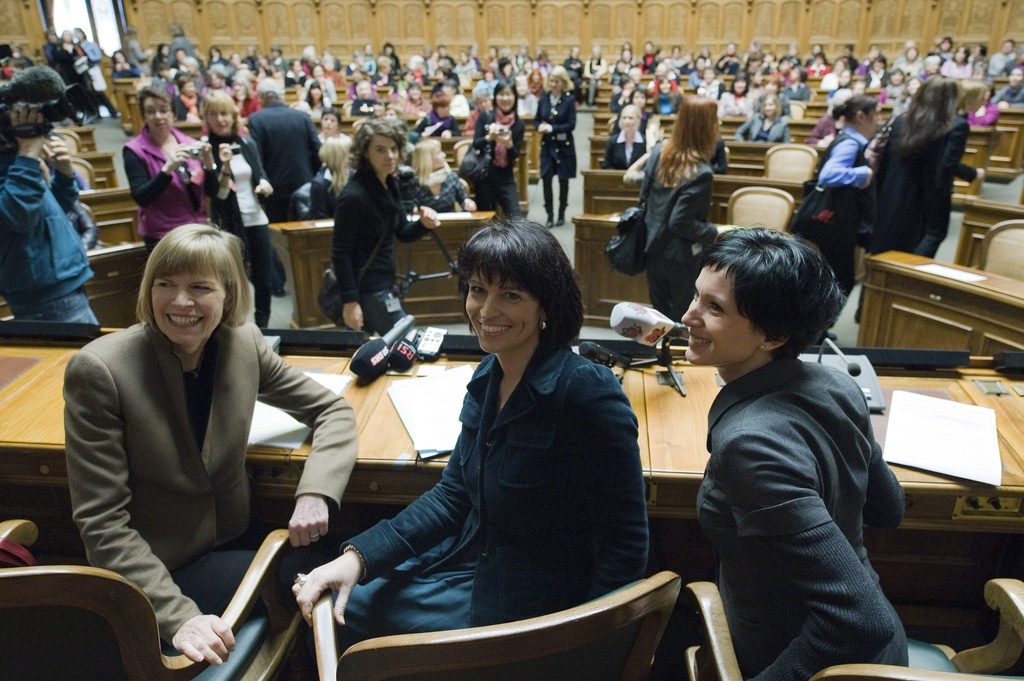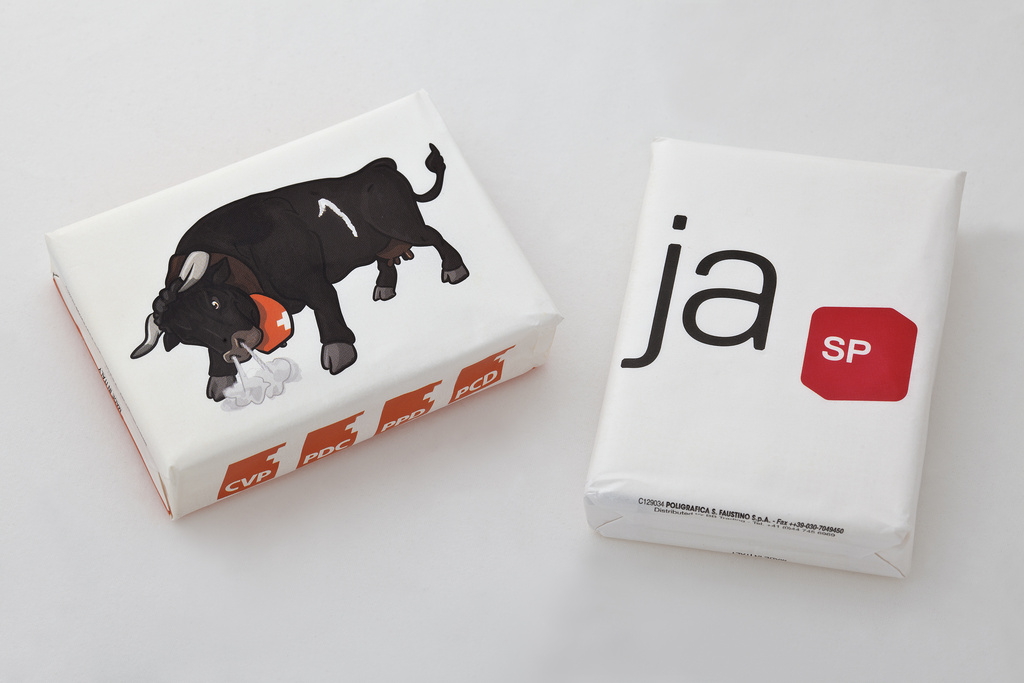Fools and pirates compete for election glory

Anti-Power Point, Pirates, No Party, Animals, Fools – in Switzerland, all these groups and more have political parties dedicated to their cause.
This year’s elections on October 23 will see some 3,400 candidates compete for the more than 200 Senate and House of Representatives seats allocated to the 26 cantons.
In the largest canton, Zurich, about 20 different parties are represented on the electoral list.
Alongside the established parties with tens of thousands of members, are the Swiss Fools Party, founded in spring 2011 and which has 19 “likes” on its Facebook page; the No Party Party, founded in June and which has around 200 members; Subitas, formerly the Swiss Men’s Party; and the Swiss Pirate Party, an offshoot of the Swedish party which has become an international movement with active parties in more than 50 countries.
It would be easy to dismiss such parties as a bit of a joke, fulfilling the need for light relief during a long election campaign which in the end is most likely to see very little change in the makeup of the parliament or the cabinet.
But while these parties may have strange names or unusual causes, most are deadly serious about the impact they wish to have.
With 1,400 members, the Swiss Pirate Party stands for internet freedom and data security and privacy and is fielding 57 candidates in seven cantons in October.
“We think that we will do well, and it would be good for Switzerland if we get seats but even if we don’t get seats it is important that people understand [our cause],” Pirate Party President Denis Simonet told swissinfo.ch.
President of the No Party Party (Parteifrei) Hans-Jacob Heitz said he founded the party because the big parties spend more time arguing than they do solving problems affecting ordinary citizens.
“Globalisation has changed the situation but our parties in Switzerland haven’t made any structural changes, they are still the same as in the last century and that means that the work they do is more ideological. They are fighting each other instead of solving problems,” said Heitz.
Big cantons, small parties
Switzerland has a long tradition of small and unusual parties grabbing a slice of political power. Currently there are 12 parties represented in parliament and five of them – Alternative Left, Lega dei Ticinesi, Federal Democratic Union, and Christian Social Party, and the Green Liberals – have just 3,000 members or fewer.
Andreas Ladner of the Swiss Graduate School of Public Administration says the Swiss electoral system – where each canton is allocated seats in the House of Representatives according to population size – is the impetus for the birth of new parties.
“It doesn’t make sense to have a small party in a canton where there are only very few seats to win and you need lots of votes to have a chance,” he said.
“But if you look at cantons like Vaud, Zurich or Bern, it’s much easier because two or three per cent of the vote would be enough for a seat.”
Aware of this, the parties are concentrating their efforts in the larger cantons. Simonet said the Pirate Party has the best chance of winning seats in Zurich and Bern.
Tactics
Heitz said the biggest challenge for the party was creating awareness of its existence. Because the No Party Party was not an established party, it was not accepted by the mass media and not invited to participate in election events, he added.
To get around this, Heitz said the party was concentrating on connecting with voters through social media, and by having candidates present outside campaign events to hand out leaflets.
President of the 2,170-member Anti-Power Point Party (APPP) Matthias Pöhm said he founded his party as a marketing tool for the sale of his book championing public speaking.
“A political party is something the media are watching closely. If I had founded an association, you wouldn’t have called me,” Pöhm said.
He said with “almost no budget”, APPP election events would be designed to attract the most media attention.
“It doesn’t help to stand in the pedestrian zones and distribute some flyers. It must be something out of the box so that the media talk about it and we get known and then have a little chance that people will vote for us,” Pöhm said.
Single-issues
An obvious question for single-issue parties such as the APPP or Pirate Party is how their candidates, if elected to the national parliament, will vote on issues outside of their platform, such as foreign policy or tax.
President of the SecondosPlus, an interest group founded to create awareness of migrant issues, Ylfete Fanaj said although the group was represented in the October elections, most Secondos members were standing as candidates for bigger political parties.
“We are just an interest group because we only have the subject of integration and migration issues,” Fanaj said. “If we were a party we should also take positions on other subjects like the economy or environment.”
Simonet said Pirate candidates post their opinions online so that people can “inform themselves” where party members stand on different issues.
“If someone votes pirates, he votes for a person. Pirates will act with their best intentions, they will vote what they think is best,” Simonet said.
Anti-Power Point Party: “We want that the number of boring PowerPoint* presentations on the planet to decrease and the average presentation to become more exciting and more interesting”.
No Party Party: “The platform of the party is neither left nor right and lets the candidates decide. According to the party charter, candidates have a consensus orientated political style based on facts.”
Swiss Pirate Party: “The digital revolution has affected all areas of life. Personal control of personal information, free access to knowledge and culture, and the protection of the private sphere are the foundation of a future information society.”
Swiss Animal Party: “…is composed of people who are committed to supporting the interests of animals in politics, the economy and society. The party bases its actions on ethics, sustainability and respect.”
Swiss Fools Party: “The Swiss Fools Party knows that it knows nothing. At least we are honest, we don’t pretend we know the answers to everything. We don’t have a platform that we will later contradict. We base our decisions on the now.”
SecondosPlus: To advance the interests of migrants within the political process. Liberalisation of the naturalisation process, voting rights for immigrants.
Sources: party websites

In compliance with the JTI standards
More: SWI swissinfo.ch certified by the Journalism Trust Initiative





You can find an overview of ongoing debates with our journalists here. Please join us!
If you want to start a conversation about a topic raised in this article or want to report factual errors, email us at english@swissinfo.ch.